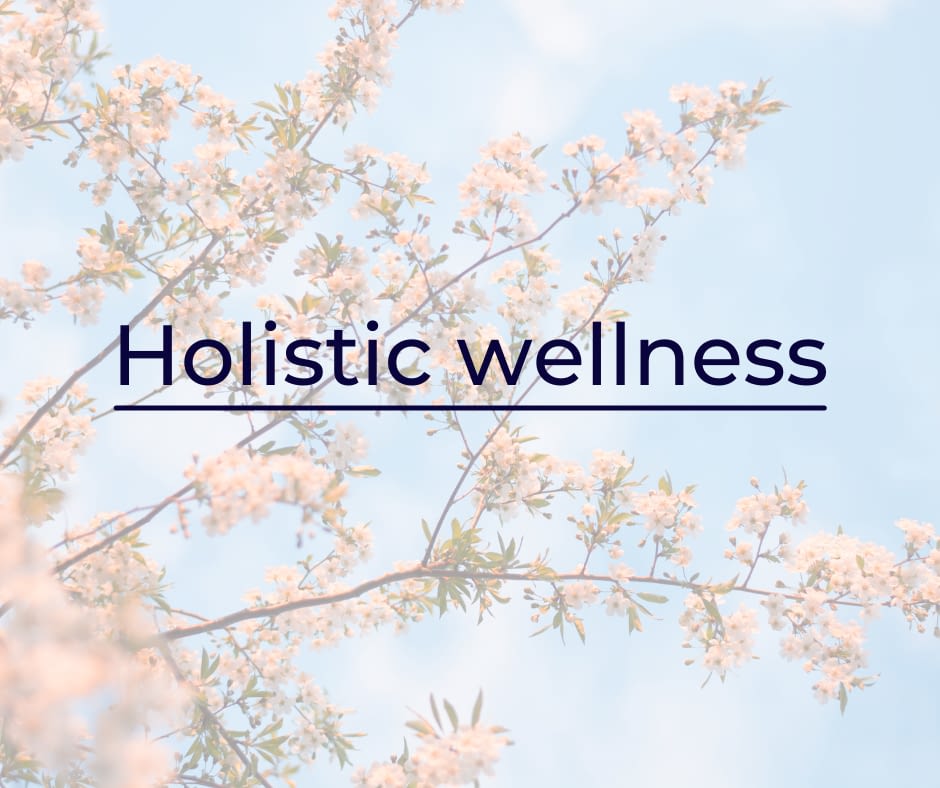Holywhat? Holistic! This is the usual reaction of someone who first hears about it.
If you should remember one thing, a holistic approach in life promotes well-being and makes you feel better. When you feel better you reduce the risks of getting sick or you recover faster.
But first things first, let’s have a proper look at the definition of holistic and its noun, holism. I will then introduce you to the holistic health approach, what I refer to mostly.
Holistic: what is it?
Holism comes from “holos”, meaning the whole in Greek. Holistic can be best described as an approach that considers a system as a whole instead of looking at its different parts independently. It’s used in many disciplines such as medicine, psychology and ecology. It has even found its way to managerial practices.
The concept of holism crossed my way when I first started a holistic massage course.
Since then, I strongly associate holism to well-being. In medicine, health care and well-being the holistic approach considers the person as a whole: her mind, her body and her spirit. All connected, when one area is unbalanced it affects the others.
A holistic approach in medicine promotes optimal health and wellness. From this perspective, the person himself is encouraged to sustain balance in the three dimension of his life to maintain health.
Holistic therapies and health
Holistic practices promote the overall well-being of a person. Instead of focusing on treating a specific symptom, they look at the bigger picture by tackling its source. In order to do so, the person is considered as unique, with her own lifestyle, thoughts and feelings.
Holistic therapies are gentle, non-invasive and natural. There are many complementary therapies and practices which are based on holism: reflexology, acupuncture, naturopathy, yoga, aromatherapy to name but a few.
They can help relieve some chronic pains but also help maintaining health by boosting the immune system.
It’s very important to mention at this point that complementary therapies go along with conventional medicine. Their combination has been proven to be very efficient in some disease treatment.
For example, acupuncture is used to lessen the pain of cancer treatment by stimulating the nervous system.
However, complementary therapies are indeed complementary and can’t cure every disease. Any practitioner should refer you to the appropriate doctor from conventional medicine if needed.
Why is holistic approach towards health beneficial?
Nowadays the mind-body connection is well known. We are what we think (note that the same goes with “We are what we eat”) and our body reflects our thoughts.
- Have you noticed how you tend to slouch your shoulders when you are stressed or worried? While, on the contrary, when you feel confident and happy your back is straight, your shoulders and your chest are open. The is just an example out of many. Pay attention to your state of mind and how your body reacts. These are some external signs that we can easily spot after some training and more awareness. Imagine now the impact of your thoughts on your internal body. It’s more complicated, isn’t it?
- Let’s take an intermediate step by looking closer at the breath. Feeling anxious? Your breath is short and your heart beats faster. However, when you’re relaxed you tend to naturally breath deeper. And, it goes without saying but I still say it, your cardiac rhythm is much slower. This is just the tip of the iceberg.
Stress increases cortisol, which at some point overloads organs. It also produces toxins that your body needs to get rid of. Complementary medicines encourage relaxation and help reducing stress. You may already know it but stress is the cause of many medical conditions and aggravates existing ones. Preventing stress seems crucial to maintain health.
Thoughts do have an impact on our body. Luckily the communication thoughts-body goes both ways, and good news, it’s easier to control our body than our mind. What we do and how we treat our body has a big impact on our thoughts. Physical activity releases endorphines, relaxation hormones that also act as pain-killer. In parallel, it decreases the cortisol and adrenaline levels, the stress hormones.
How to apply holistic practices to your daily life
To maintain optimal health, I recommend you to integrate some simple but very beneficial practices into your lifestyle. I have listed a few examples to give you some ideas:
- Journaling
- Stretching
- Exercising
- Being mindful
- Eating a healthy diet
- Practicing meditation
- Spending time outdoor
- Ensuring quality of sleep
- Drinking plenty of water
- Having a positive self-talk
- Dedicating enough time to yourself and to your loved ones
Practiced on a regular basis, ideally every day, those activities ensure a balanced body-mind-spirit connection, release stress and boost your immunity and your general well-being.
Do you have any tips to share to add to the list? I’m looking forward to read your addition in the comments.

